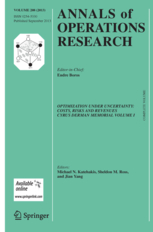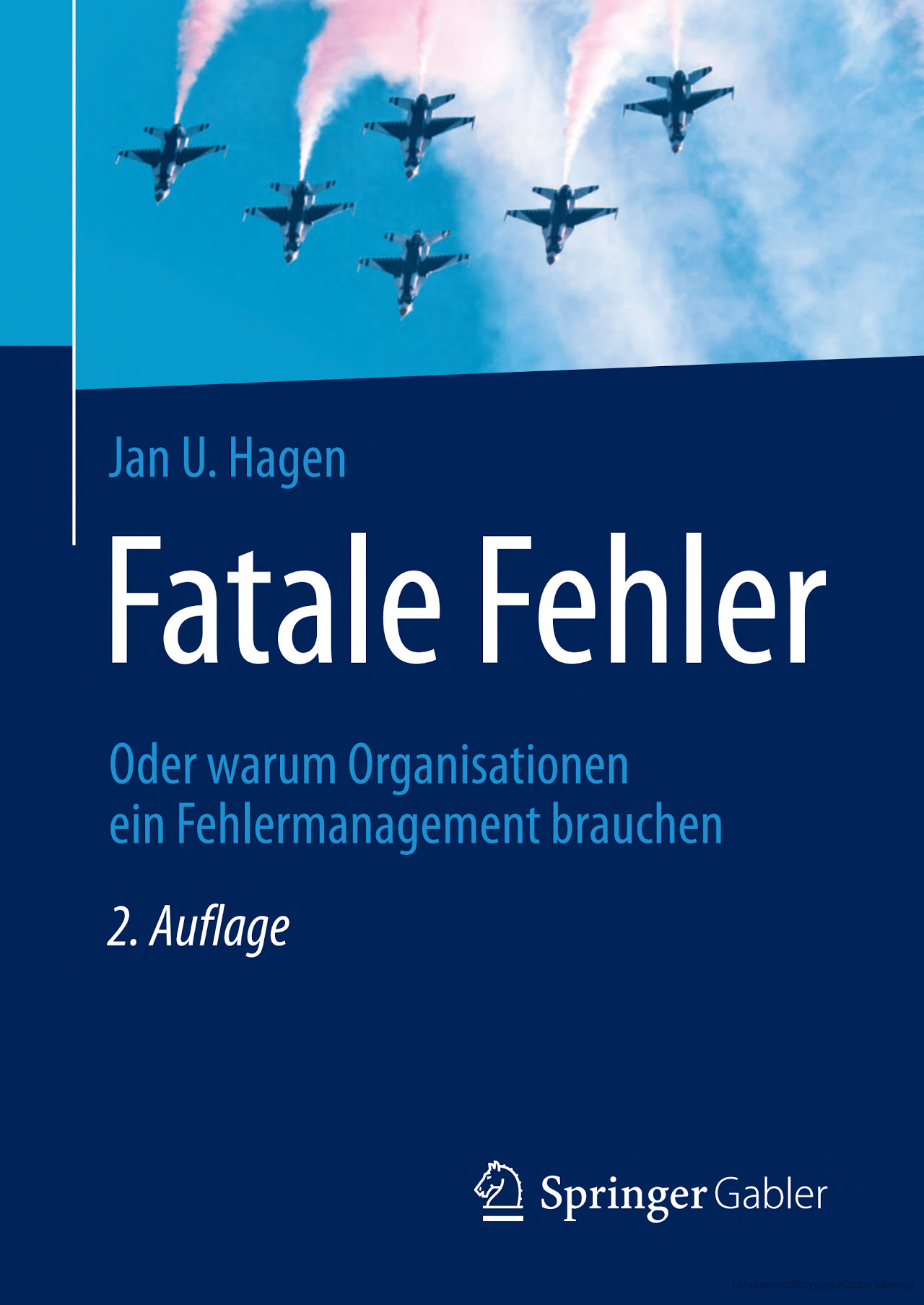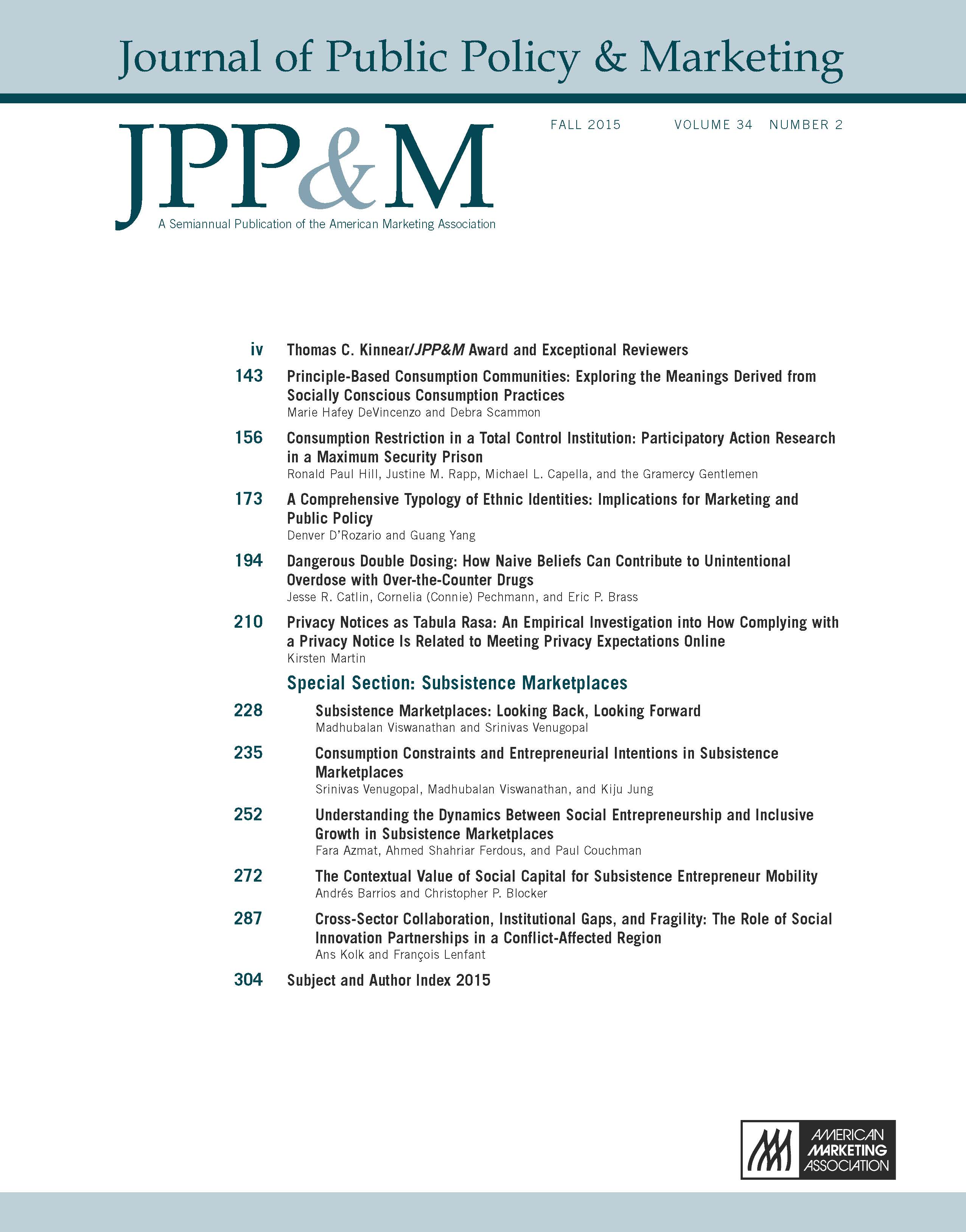Academic articles
Practitioner articles
Working papers
Books
Book chapters
Case studies
Other publications
Subject(s)
Product and operations management
Keyword(s)
Supply chain management, procurement, bidding, supply risk, price volatility, price-dependent base-stock policy
We consider a firm buying a commodity from a spot market as raw material and selling a final product by submitting bids. Bidding opportunities (i.e., demand arrivals) are random, and the likelihood of winning bids (i.e., selling the product) depends on the bid price. The price of the commodity raw material is also stochastic. The objective of the firm is to jointly decide on the procurement and bidding strategies to maximize its expected total discounted profit in the face of this demand and supply randomness. We model the commodity prices in the spot market as a Markov chain and the bidding opportunities as a Poisson process. Subsequently, we formulate the decision-making problem of the firm as an infinite-horizon stochastic dynamic program and analytically characterize its structural properties. We prove that the optimal procurement strategy follows a price-dependent base-stock policy and the optimal bidding price is decreasing with respect to the inventory level. We also formulate and analyze three intuitively appealing heuristic strategies, which either do not allow for carrying inventory or adopt simpler bidding policies (e.g., a constant bid price or myopically set bid prices). Using historical daily prices of several commodities, we then calibrate our models and conduct an extensive numerical study to compare the performances of the different strategies. Our study reveals the importance of adopting the optimal integrative procurement and bidding strategy, which is particularly rewarding when the raw material prices are more volatile and/or when there is significant competition on the demand side (the probability of winning is much smaller when submitting the same bid price). We establish that the relative performances of the three heuristic strategies depend critically on the holding cost of raw material inventory and the competitive environment, and identify conditions under which the shortfalls in profits from adopting such strategies are relatively less significant.
© Springer Science+Business Media New York 2015. With permission of Springer
Volume
257
Journal Pages
121–165
Subject(s)
Human resources management/organizational behavior
Keyword(s)
Error management, health care
Volume
9
Subject(s)
Human resources management/organizational behavior; Strategy and general management; Technology, R&D management
Keyword(s)
Preferences, graduate education, science careers, STEM labor markets, science policy
JEL Code(s)
O32, J22, J44
There is increasing evidence that science & engineering PhD students lose interest in an academic career over the course of graduate training. It is not clear, however, whether this decline reflects students being discouraged from pursuing an academic career by the challenges of obtaining a faculty job or whether it reflects more fundamental changes in students’ career goals for reasons other than the academic labor market. We examine this question using a longitudinal survey that follows a cohort of PhD students from 39 U.S. research universities over the course of graduate training to document changes in career preferences and to explore potential drivers of such changes. We report two main results. First, although the vast majority of students start the PhD interested in an academic research career, over time 55% of all students remain interested while 25% lose interest entirely. In addition, 15% of all students were never interested in an academic career during their PhD program, while 5% become more interested. Thus, the declining interest in an academic career is not a general phenomenon across all PhD students, but rather reflects a divergence between those students who remain highly interested in an academic career and other students who are no longer interested in one. Second, we show that the decline we observe is not driven by expectations of academic job availability, nor by related factors such as postdoctoral requirements or the availability of research funding. Instead, the decline appears partly due to the misalignment between students’ changing preferences for specific job attributes on the one hand, and the nature of the academic research career itself on the other. Changes in students’ perceptions of their own research ability also play a role, while publications do not. We discuss implications for scientific labor markets, PhD career development programs, and science policy.
Volume
12
ISSN (Online)
1932-6203
Subject(s)
Human resources management/organizational behavior
Keyword(s)
Fehlermanagement, Kommunikation, Führung, Teams, error management, communication, leadership, teams, organizational behavior
Ich irre, also bin ich, schrieb Augustinus, und Benjamin Franklin war der Meinung, die Geschichte der menschlichen Irrtümer sei interessanter als diejenige ihrer Erfindungen; doch wenn wir uns irren und Fehler machen, ärgern wir uns und fühlen uns peinlich berührt. Am unangenehmsten sind uns die Fehler, die uns geschäftlich unterlaufen, denn auf dieser Ebene ist das Publikum in der Regel größer als im privaten Kreis. Dass diese Einstellung verhängnisvoll ist, demonstriert Jan Hagen auf faszinierende Weise anhand einschlägiger Beispiele aus der zivilen und militärischen Luftfahrt. Ebenso eindrucksvoll beschreibt er, wie dort nach und nach ein einschlägiges Fehlermanagement entwickelt wurde, die Widerstände, die auf dem Weg dahin überwunden werden mussten, und die langsame aber letztlich erfolgreiche Generierung jener sachlichen, fehlerdiagnostischen Kultur, die heute jedes moderne Unternehmen braucht.
Volume
2nd ed.,
Pages
206
ISBN
978-3-662-55483-8
ISBN (Online)
978-3-662-55484-5
Subject(s)
Economics, politics and business environment; Ethics and social responsibility; Marketing; Strategy and general management
Keyword(s)
Corporate social responsibility (CSR); CSR regulation; customer–supplier relationship; power; stakeholder pressure
In face of the increasing attention on issues of sustainability and corporate social responsibility (CSR) by the general public and policy makers, companies have put growing emphasis on ensuring CSR along their supply chains. In this vein, existent research has produced evidence that companies can increase their suppliers’ CSR engagement by exerting explicit pressure on them, e.g., through contractual clauses. Adding to this conventional chain of CSR enforcement, this paper conceptualizes and empirically validates a so far undescribed extended chain of CSR enforcement that also leads to higher levels of a supplier firm’s CSR engagement irrespective and even in the absence of explicit pressure by its customer company. In particular, a customer firm’s CSR orientation in interaction with a powerful position in the supply chain leads suppliers to perceive pressure to engage in CSR regardless of factually exerted pressure. As a result, suppliers are likely to increase their CSR engagement in order to be customer oriented or in preemptive obedience. These results entail substantial implications for policy makers as well as marketing academics and managers.
Volume
36
Journal Pages
331–347
ISSN (Print)
0743–9156
Subject(s)
Human resources management/organizational behavior; Marketing; Strategy and general management
Keyword(s)
Solutions, servitization, incentivization, variable compensation
JEL Code(s)
M310
Volume
2017
Journal Pages
33–35
Subject(s)
Finance, accounting and corporate governance
Volume
18
Journal Pages
179–180
ISSN (Online)
2366–6153
ISSN (Print)
0341–2687
Subject(s)
Ethics and social responsibility
Keyword(s)
Big data, corporate social responsibility, employment, environmental sustainability, ethics, partnerships, socially responsible business, supply chains, sustainability
JEL Code(s)
M000
Subject(s)
Technology, R&D management
Keyword(s)
Digitalization, information systems, digital capability, resource based view, social capital theory, value from IT
Secondary Title
The Routledge companion to management information systems
ISBN
978-1-13-866645-0



